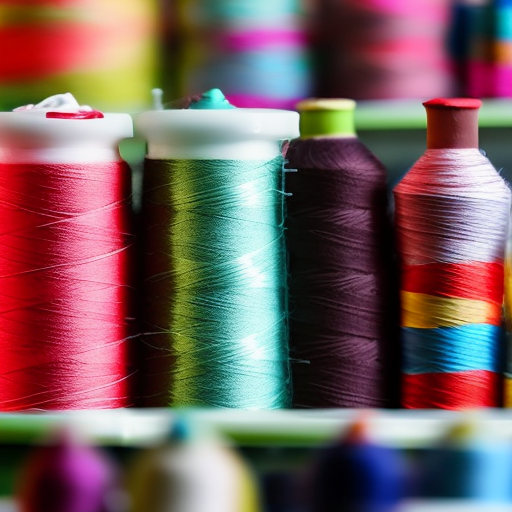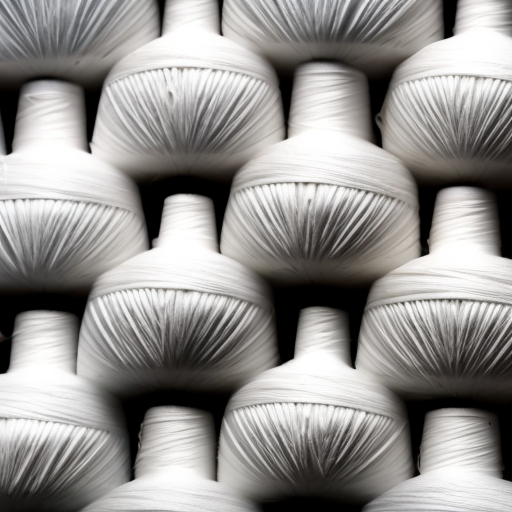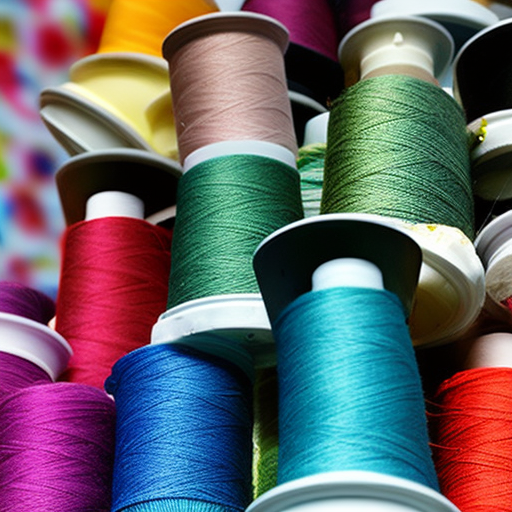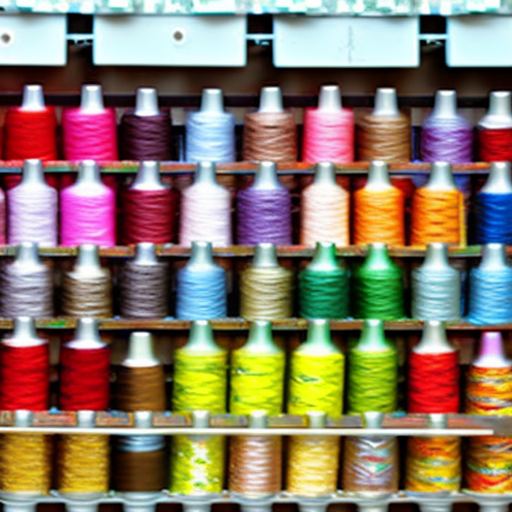

Choosing the right sewing thread is essential for any sewing project. The type of thread you use can affect the longevity, functionality, and overall appearance of your creation. With a wide variety of thread options available, it’s important to understand the characteristics of different types to determine which one is best suited for your specific needs.
Cotton Thread
Cotton thread is a popular choice for general sewing purposes. It is known for its strength, durability, and ability to withstand high heat. Cotton thread is suitable for both hand and machine sewing and works well with natural fabric materials such as cotton and linen. However, it may not be the best choice when working with synthetic or stretch fabrics, as cotton thread does not have much give or elasticity.
Polyester Thread
Polyester thread is a versatile option suitable for a wide range of sewing projects. It is strong, durable, and has a good amount of stretch, making it ideal for machine sewing. Polyester thread works well with both natural and synthetic fabrics, making it a popular choice among sewists. It is also more resistant to fading, shrinking, and fraying compared to cotton thread.
Nylon Thread
Nylon thread is known for its exceptional strength, making it perfect for heavy-duty sewing tasks. It is commonly used for sewing upholstery, leather goods, and other items that require a robust and long-lasting thread. Nylon thread has good resistance to abrasion, chemicals, and sunlight, ensuring the longevity of your sewn projects.
Specialty Threads
In addition to the commonly used cotton, polyester, and nylon threads, there are several specialty threads available for specific sewing applications. These include:
- Rayon Thread: Known for its lustrous finish, rayon thread is often used for decorative stitching and embroidery.
- Metallic Thread: As the name suggests, metallic threads add a touch of shimmer and are popular for decorative purposes.
- Elastic Thread: Elastic thread is used for creating stretchy and gathering effects in garments like shirring or smocking.
- Quilting Thread: Strong and thin, quilting thread is designed specifically for piecing and quilting projects.
Conclusion
Ultimately, the best sewing thread depends on the project at hand. Consider the fabric type, the level of durability required, and whether the thread needs to be visible or decorative. Cotton thread is reliable for everyday sewing needs, while polyester and nylon threads offer versatility and strength. Exploring specialty threads allows you to explore more creative sewing possibilities. By choosing the appropriate thread, you can ensure your sewing projects turn out in the best possible way.





Rayon or cotton thread is ideal for most projects, but it depends on what you’re making.
Angelo Kita: Polyester thread is often a great choice for certain projects as it’s strong and durable.
Both Rayon and polyester thread are useful, but it’s important to do research into which type is best for the specific project you’re working on!
Yes, the type of thread you choose depends on the fabric type, stitches used, and the desired end result. Research is key!
Good advice from Angelo and Analisa! I think the best way to go is to experiment with different threads and see which one works best for you and your project.